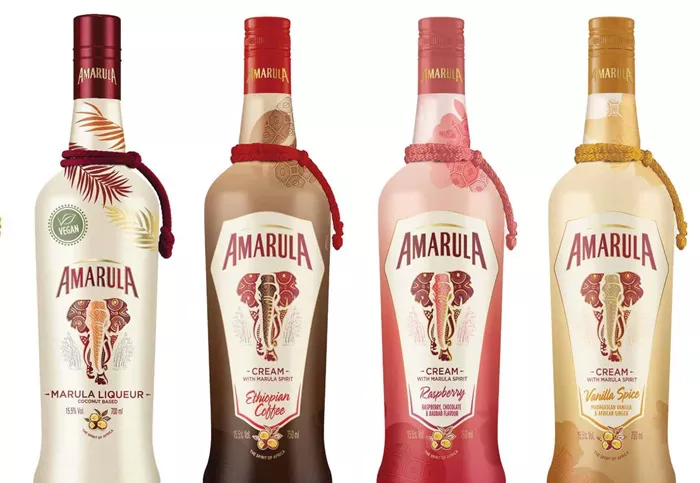Amarula is a unique and popular beverage known for its creamy texture and rich flavor. Many people wonder whether Amarula is a wine or a spirit. This article explores the origins of Amarula, its ingredients, production process, and classification. Understanding these aspects will clarify why Amarula is categorized as a spirit, not a wine.
What is Amarula?
Amarula is a liqueur made from the fruit of the marula tree, which grows in sub-Saharan Africa. The marula fruit is small and yellow, with a sweet and tart taste. It is often eaten fresh or used to make various beverages. The marula tree is also known for its cultural significance among local communities.
The Marula Fruit
Description
The marula fruit is rich in vitamin C and has a delightful aroma. It ripens between January and March. The fruit is small, about the size of a plum, and has a hard pit inside. When ripe, the fruit becomes soft and is ready for harvesting.
Harvesting
Harvesting marula fruit is a communal activity in many regions. People gather in groups to collect the fruit, which is often eaten fresh or fermented. The fermentation process is crucial for producing traditional marula beverages. However, Amarula takes a different approach.
Ingredients of Amarula
Amarula contains several key ingredients:
Marula Fruit: The primary ingredient, providing flavor and aroma.
Cream: Fresh cream is added to create a smooth and creamy texture.
Sugar: Sugar is used to sweeten the liqueur.
Alcohol: Neutral grain spirit serves as the base for the liqueur.
Marula Fruit
The marula fruit is fermented to extract its flavor. After fermentation, the fruit is distilled, and the resulting spirit forms the base of Amarula.
Cream
Fresh cream is sourced from local dairy farms. It is mixed with the distilled spirit to give Amarula its creamy consistency. This combination is what sets Amarula apart from other spirits.
The Production Process
The production of Amarula involves several steps:
Harvesting: The marula fruit is hand-picked from the trees.
Fermentation: The fruit is fermented to develop its flavors.
Distillation: The fermented fruit is distilled to create a strong spirit.
Mixing: The distilled spirit is blended with fresh cream and sugar.
Bottling: Finally, Amarula is bottled and labeled for sale.
Fermentation and Distillation
The fermentation process usually takes about two weeks. After fermentation, the mash is distilled. This process separates the alcohol from the solids, resulting in a clear spirit.
Blending
Once distilled, the spirit is blended with fresh cream. This step is crucial for achieving the characteristic taste and texture of Amarula. The blending is carefully monitored to ensure consistency in flavor.
See Also: Do You Know the 5 Most Famous Spirits?
Amarula’s Classification
Is Amarula a Wine?
To understand whether Amarula is a wine, we need to define what wine is. Wine is typically made from fermented grapes or other fruits. The fermentation process for wine involves the conversion of sugars into alcohol by yeast. While Amarula does use a fruit, the marula, it is not produced in the same way as wine.
Is Amarula a Spirit?
Amarula is classified as a liqueur. Liqueurs are sweetened spirits infused with flavors. The primary ingredient in Amarula is distilled marula fruit, making it a spirit. The addition of cream and sugar further solidifies its classification as a liqueur rather than a wine.
Taste Profile of Amarula
Amarula has a unique flavor profile that appeals to many:
Creamy: The fresh cream gives Amarula a smooth and rich texture.
Sweet: Amarula is sweet but balanced, making it enjoyable to sip.
Fruity: The marula fruit imparts a fruity flavor with hints of citrus and tropical notes.
Uses of Amarula
In Cocktails
Amarula is versatile and can be used in various cocktails. Here are some popular options:
Amarula on the Rocks: Simply pour Amarula over ice for a refreshing drink.
Amarula Martini: Combine Amarula with vodka and shake over ice.
Chocolate Amarula: Mix Amarula with chocolate liqueur for a decadent dessert drink.
As a Dessert
Amarula can also be used in desserts. It adds a creamy, sweet flavor to cakes, mousses, and ice creams. Chefs often use Amarula in sauces or as a drizzle over desserts.
Nutritional Information
Amarula contains approximately:
Calories: About 150 calories per serving (1.5 oz).
Alcohol Content: Amarula has an alcohol by volume (ABV) of 17%.
It is essential to consume Amarula in moderation due to its sugar content and alcohol level.
Amarula is not just a beverage; it has cultural importance in Southern Africa. The marula tree is revered, and its fruit is celebrated in local traditions. Amarula’s production supports local economies, providing jobs and promoting sustainable practices.
Conclusion
In conclusion, Amarula is a spirit, specifically a liqueur made from the marula fruit. Its creamy texture, sweet flavor, and unique production process distinguish it from wine. Whether enjoyed on its own or in cocktails, Amarula offers a delightful experience for those who appreciate quality spirits. Its cultural significance adds to its charm, making it more than just a drink. Amarula is a celebration of flavor, tradition, and community.
You Might Be Interested In:


